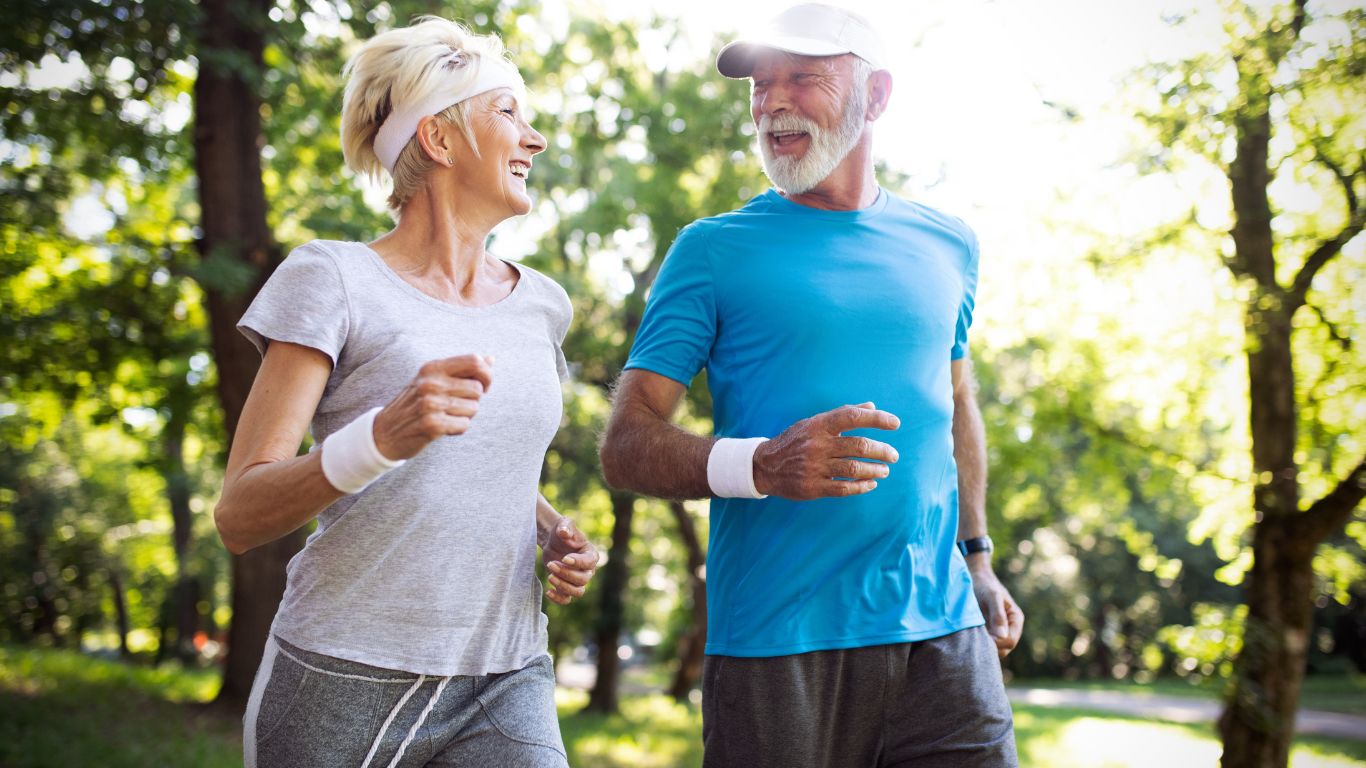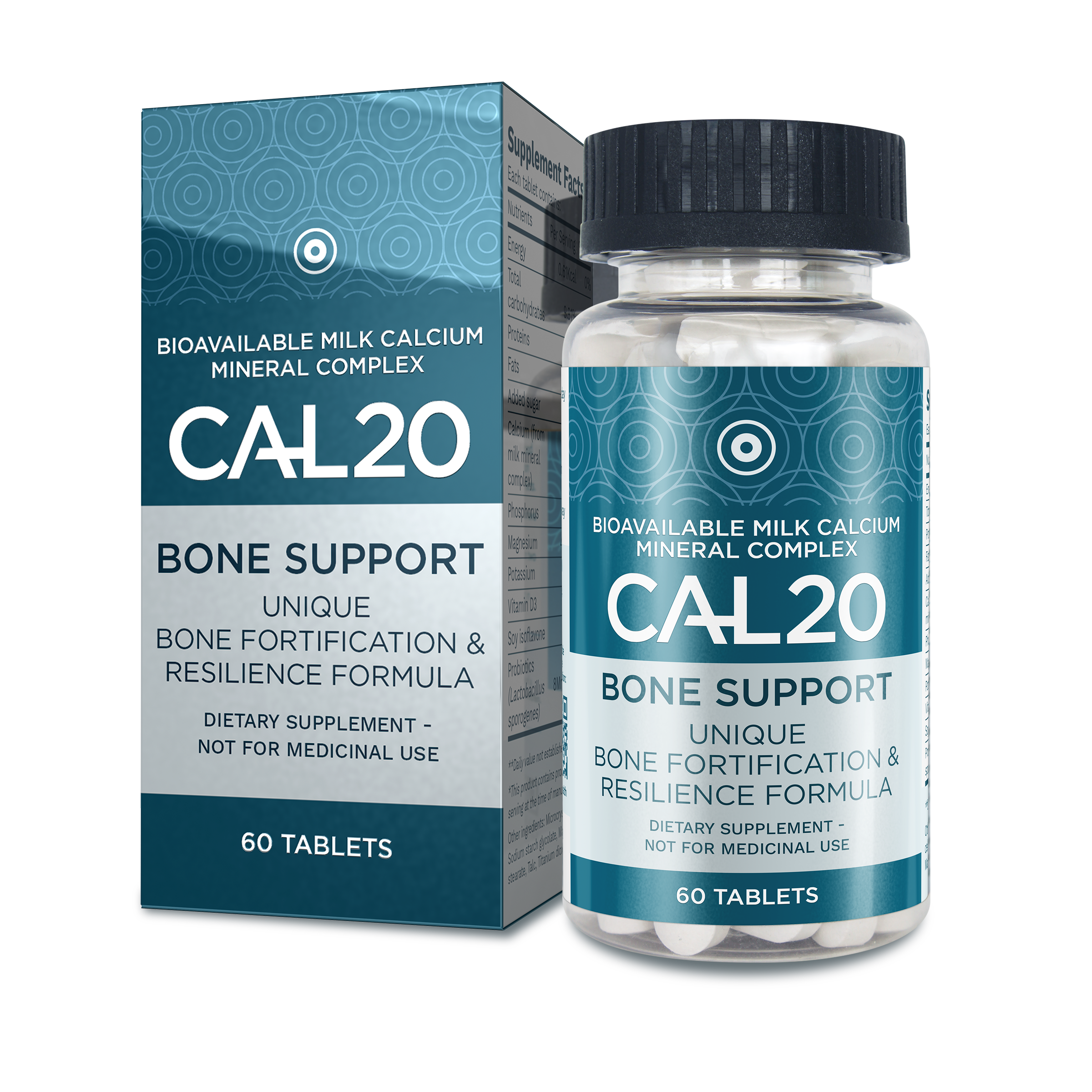Menopausal Osteoporosis clinical study
A study was conducted with 140 post-menopausal female subjects who were diagnosed with osteoporosis to determine the efficacy of Bioavailable calcium (Cal20) on Bone Mass Density (BMD) over a two month period. 112 subjects were treated with Cal20 and BMD was measured after 4 and 8 weeks of administration of Cal20 based on the BMD affected by osteoporosis at the baseline visit.
112 subjects completed the study which resulted in: 73.21% of subjects with osteoporosis showed an improvement in BMD and a reduction in symptoms such as lower back and hip pain. At the end of 8 weeks, 87.5% of subjects showed an increase in BMD. The report by Dr. N. Koteshwar Roa, Dr. M. Janardhan, Dr. Sharanappa and Dr. S.H Patel with reporting by Dr C. Mohan concluded that post-menopausal women with clinically confirmed osteoporosis benefited greatly from taking Cal20 as they saw an improvement in BMD in the lumbar spine and hips as well as overall relief of symptoms associated with osteoporosis. No side effects were experienced.
See the full study here
Bioavailable Calcium-Probiotics study
A phase III clinical trial was conducted in India in 2011 over a period of 6 months to review Bioavailable Calcium (Cal20). The trial, which involved close to 2000 subjects who suffered with varying degrees of osteopenia and osteoporosis, shows the efficacy of Cal20 in treating and reversing the effects of osteopenia and osteoporosis.
100 physicians were asked to choose 20 patients and separate them into 4 groups of 5 people categorised by the severity of their symptoms; mild osteopenia, moderate osteopenia, mild osteoporosis and moderate osteoporosis. They then also had to separate the subjects according to age not to their gender. Those above 40 years and those below 40 years of age.
Cal20 with isoflavones was given only to the subjects over 40 years of age to aid the uptake of the calcium.
Results of the trail showed that most patients with Osteopenia reported a full recovery based on symptoms and physical condition. Most of the mild osteopenia subjects who were only taking 900mg a day reported excellent recovery after only 2 months. The advanced osteopenia patients showed an increase in BMD in three to four months, whilst the mild osteoporosis patients, who were taking 1800mg a day, recovered well after 4 months. 75% of the advanced osteoporosis patients, who were taking 2250mg, took 6 months for up to recover from osteoporosis.
No side effects were reported by any group other than those taking 2250mg a day. They experienced mild diarrhoea at the beginning of the trial which subsided after a few days. Recovery was judged based on symptoms not DXA scans. By the end of the trial, the subjects experienced major reduction in joint and muscle pain when walking or lying in bed as they previously had. Sleep patterns improved as well as the complexion of their skin, hair and nails.
This large community-based clinical trial showed that Cal20 has a significant effect in reversing osteopenia and osteoporosis in addition to improving overall health and appearance.
Controlled experiment in the USA
Two Caucasian females, of Northern European ancestry, were recruited for this controlled study.
Subject A: 58 years of age with confirmed osteoporosis (T-score of 3.32) who had had a hysterectomy at age 25. Physicians believed she had developed osteoporosis due to the reduction in her oestrogen hormone throughout most of her life. She was treated with drugs to reverse osteoporosis but had constant complaints of joint pain, muscle cramps, sleeplessness and unexplained pain in her bones.
Subject B: 65 years of age with confirmed osteoporosis (T-score 1.37) who reported weakness, joint pain and pain in her bones.
Both subjects were given 2000mg of Cal20 a day with no isoflavones for 6 months and had DXA scans to determine bone mass density. Diet, exercise and lifestyle patterns were carefully monitored.
Subject A reported a great improvement in joint pain, relief of muscle cramps and improved sleep patterns. She no longer experienced pain in her bones or fatigue. Her T-score improved from 3.32 to 3.07 which she had never experienced over the years of taking drugs to combat osteoporosis. The 2000mg of Cal20 also improved her overall physical health, which she had never experienced when taking non-dairy based calcium supplements available in the market. The fact that her peak bone mass was very low during adolescence as well as her hysterectomy when she was 25, could explain why Cal20 did not completely cure her osteoporosis.
Subject B who had osteopenia was completely cured in a few months. She went from a Z-score of 1.2 to 2.70 and a T-score of -1.37 to +0.98. She also reported better skin complexion and texture, luxurious hair growth, stronger nails.
The conclusion of this study was that Cal20 could not only increase the subjects BMD but had excellent results in aiding the anti aging process by improving physical health and appearance.
Common calcium supplements currently on the market such as Calcium Carbonate or Calcium Citrate are not construed as bioavailable. Essential minerals, amino acids and probiotics found in Cal20 is what assures the absorption of calcium by the body and makes it 100% bioavailable.
See the full study here
Clinical Trials in Cape Town South Africa
These clinical trials, which followed participants with varying degrees of osteoporosis over a 6 month period, headed up by Dr Duncan Carmichael in 2020. The results are of a very similar nature to the above case studies, showing an improvement in bone density in all participants.
See Lindy Botha’s testimonial video – one of the trial patients




